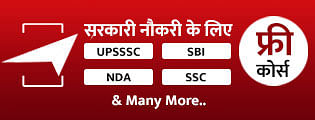
The crossover between literature, performance, classicism and its modern interpretations will be on showcase at the 15th Bharat Rang Mahotsav, the National School of Drama`s (NSD) annual theatre festival here Jan 5-20.
The festival will celebrate the legacy of contemporary story-teller Saadat Hasan Manto, 16th century playwright William Shakespeare and popular theatre in the perspective of the modern Indian stage.
Announcing the 15-day theatre gala, NSD chairperson Amal Allana said the festival will bring to the capital and twin venue of Jaipur a total of 87 plays, lectures, interactions, offsite projects and special packages.
It will open with ‘Atmakatha’, a two-hour play directed by Vinay Sharma, featuring former Bollywood actor Kulbhushan Kharbanda. It will mark the actor`s return to the stage after decades, Allana said.
The festival will be spread across eight venues in the capital.
"The wider variety of plays this year has allowed us to package them into categories. The `Manto section` has six plays adapted from stories by Saadat Hasan Manto and the section on Shakespeare will explore the `inter-cultural influence on the dramatist` with seven productions," Allana said.
Allana added: "The focus will be on popular theatre that evolved from the Parsi form of theatre in the second half of 19th century."
The 450 entries from which 87 were shortlisted were from across regions and genres that were not always "dependent on the government for support".
The Indian panorama with 11 productions and 52 other performances -- adaptations, re-visitings, improvisations, devised plays and traditional renditions -- will reflect contemporary theatre practises across India.
The Manto section will include a presentation ‘Mantoiyat’ in the tradition of "dastangoi", traditional Urdu story-telling by Danish Husain and Mahmood Farooqui, and two plays from Pakistan, ‘Mantorama’ and ‘Kaun Hain Yeh Gustakh’.
The Shakespeare panorama will play host to the likes of indigenous improvisations of ‘Lear’, a solo performance from Turkmenistan, an Assamese adaptation of ‘Julius Caeser’, a Hindi makeover of ‘Twelfth Night’, ‘Piya Behroopia’ that played at the Globe Theatre in London last season, followed by the Footsbarn Theatre`s ‘Indian Tempest’ as physical theatre.
Wendy Jehlen of the US will present excerpts from ‘Hamlet’, ‘Macbeth’, ‘Othello’ and ‘Titus Andronicus’ in a choreographed non-verbal piece as ‘The Knocking Within’.
A Malayalee adaptation, ‘Yamadoothu: After the Death of Othello’ in Malayalam from Kerala based on Shakespeare`s ‘Othello’ will also be staged.
Pointing to the trends in Indian contemporary theatre, Amal Allana said "the trend to go back to traditional forms of theatre has waned".
"We don`t have to go back to folk theatre and traditional theatre to sustain contemporary theatre. Plays are being staged as performances and devised scripts. There is more exchange and effort between theatre people because of greater a sense of participation and lack of original scripts," Allana said.
She said "the complexity of new theatre has brought in wake more non-verbal plays and physical theatre".
NSD director Anuradha Kapur said "there was a flowering of another kind of script that were meant to be read. We are reading scripts and performing them as well".
The festival will celebrate the legacy of contemporary story-teller Saadat Hasan Manto, 16th century playwright William Shakespeare and popular theatre in the perspective of the modern Indian stage.
Announcing the 15-day theatre gala, NSD chairperson Amal Allana said the festival will bring to the capital and twin venue of Jaipur a total of 87 plays, lectures, interactions, offsite projects and special packages.
It will open with ‘Atmakatha’, a two-hour play directed by Vinay Sharma, featuring former Bollywood actor Kulbhushan Kharbanda. It will mark the actor`s return to the stage after decades, Allana said.
The festival will be spread across eight venues in the capital.
"The wider variety of plays this year has allowed us to package them into categories. The `Manto section` has six plays adapted from stories by Saadat Hasan Manto and the section on Shakespeare will explore the `inter-cultural influence on the dramatist` with seven productions," Allana said.
Allana added: "The focus will be on popular theatre that evolved from the Parsi form of theatre in the second half of 19th century."
The 450 entries from which 87 were shortlisted were from across regions and genres that were not always "dependent on the government for support".
The Indian panorama with 11 productions and 52 other performances -- adaptations, re-visitings, improvisations, devised plays and traditional renditions -- will reflect contemporary theatre practises across India.
The Manto section will include a presentation ‘Mantoiyat’ in the tradition of "dastangoi", traditional Urdu story-telling by Danish Husain and Mahmood Farooqui, and two plays from Pakistan, ‘Mantorama’ and ‘Kaun Hain Yeh Gustakh’.
The Shakespeare panorama will play host to the likes of indigenous improvisations of ‘Lear’, a solo performance from Turkmenistan, an Assamese adaptation of ‘Julius Caeser’, a Hindi makeover of ‘Twelfth Night’, ‘Piya Behroopia’ that played at the Globe Theatre in London last season, followed by the Footsbarn Theatre`s ‘Indian Tempest’ as physical theatre.
Wendy Jehlen of the US will present excerpts from ‘Hamlet’, ‘Macbeth’, ‘Othello’ and ‘Titus Andronicus’ in a choreographed non-verbal piece as ‘The Knocking Within’.
A Malayalee adaptation, ‘Yamadoothu: After the Death of Othello’ in Malayalam from Kerala based on Shakespeare`s ‘Othello’ will also be staged.
Pointing to the trends in Indian contemporary theatre, Amal Allana said "the trend to go back to traditional forms of theatre has waned".
"We don`t have to go back to folk theatre and traditional theatre to sustain contemporary theatre. Plays are being staged as performances and devised scripts. There is more exchange and effort between theatre people because of greater a sense of participation and lack of original scripts," Allana said.
She said "the complexity of new theatre has brought in wake more non-verbal plays and physical theatre".
NSD director Anuradha Kapur said "there was a flowering of another kind of script that were meant to be read. We are reading scripts and performing them as well".










